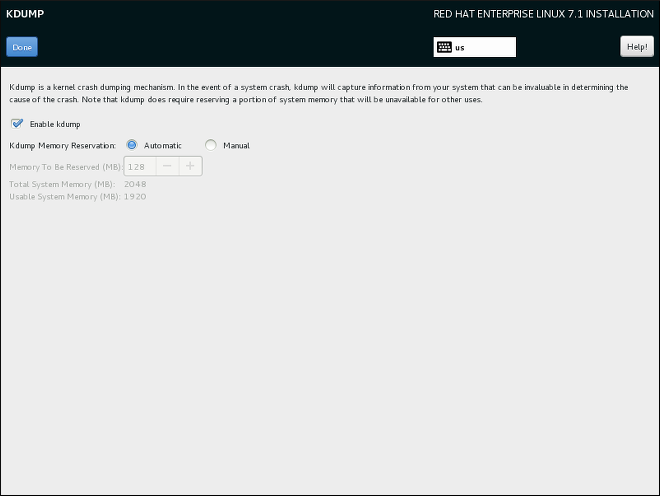Questo contenuto non è disponibile nella lingua selezionata.
13.17. Kdump
Use this screen to select whether or not to use Kdump on this system. Kdump is a kernel crash dumping mechanism which, in the event of a system crash, captures information that can be invaluable in determining the cause of the crash.
Note that if you enable Kdump, you must reserve a certain amount of system memory for it. As a result, less memory is available for your processes.
IBM Power System LPARs support firmware-assisted dump (fadump), an alternate dump capture mechanism to Kdump. With fadump, dump capture takes place from a fully reset system that is loaded with a fresh copy of the kernel. In particular, PCI and I/O devices are reinitialized and are in a clean, consistent state making it a reliable alternative to Kdump. Note that although fadump is an alternative to Kdump, fadump requires Kdump to be enabled. You can enable fadump on this screen.
If you do not want to use Kdump on this system, uncheck . Otherwise, set the amount of memory to reserve for Kdump. You can let the installer reserve a reasonable amount automatically, or you can set any amount manually. When your are satisfied with the settings, click to save the configuration and return to the previous screen.
Figure 13.35. Kdump Enablement and Configuration
